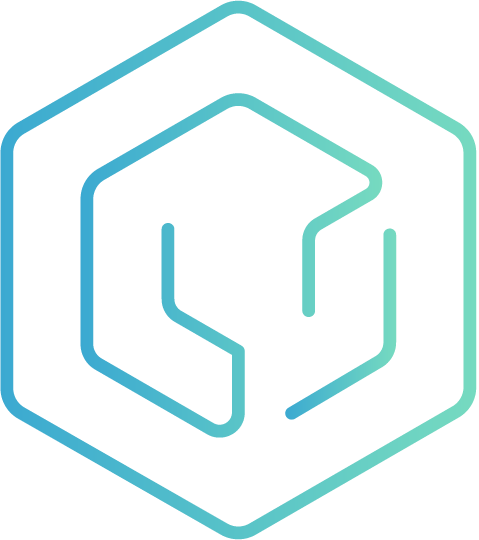Develocity Support for the
Gradle Build Tool
For Gradle Build Tool users, Develocity can accelerate feedback cycle times and make troubleshooting Gradle builds more efficient by leveraging the most advanced build and test performance acceleration and analytic technologies.
Key Develocity Benefits for Gradle Build Tool Users
The key strategic benefits of leveraging Develocity include the ability to:

Extend the power of the Gradle Build Tool with support for build and test feedback-cycle acceleration; more efficient troubleshooting; improved build, test, and toolchain reliability; and better CI resource efficiency and cost management.

Make developer happiness a competitive advantage in the race to attract and retain talent. Achieve this by ensuring that developers spend more time being creative and writing great code, rather than getting bogged down waiting for builds and tests to complete and troubleshooting problems.

Bring observability to build and test outcomes and share results with colleagues and management stakeholders. Develocity observes performance and failure trends to foster proactive interventions, continuous improvement, and management visibility and reporting.
3 Things you should know about the Gradle Build Tool
- Gradle Build Tool is the most popular build tool for new open source JVM projects on GitHub. Users download it, on average, about 30 million times per month and has been counted in the “Top 20 Most Popular Open-Source Projects for IT” by TechCrunch.
- Many of the most successful open-source projects use Gradle Build Tool in combination with Develocity. Prominent examples include Spring, JUnit, and Kotlin. Visit OSS Projects Revved up by Develocity to explore all live instances of Develocity running at popular OSS project sites.
- Gradle Build Tool is the default build tool for Android Studio, which is the official integrated development environment (IDE) for Google’s Android operating system.
Frequency Asked Questions
-
- Is Develocity the commercial version of Gradle Build Tool?
No. Develocity is an open commercial platform that improves developer productivity by augmenting Gradle, Maven, and Bazel build tools with performance acceleration and analytic technologies. These technologies speed up build and test feedback cycles and make troubleshooting, continuous improvement efforts, and related collaboration more efficient.
- Is Develocity the commercial version of Gradle Build Tool?
-
- Specifically, what are the functionality differences between Gradle Build Tool and Develocity?
Develocity complements the Gradle Build Tool with additional performance acceleration technologies beyond Build Cache. These technologies ensure that:- Only relevant and necessary tests are run (Predictive Test Selection)
- Tests can be executed in parallel (Test Distribution)
- Performance gains do not regress over time (Performance Continuity)
Further, Develocity build and test Failure Analytics and trend observability (Trends & Insights), ensure that developers can surface systemic issues before they become significant problems. Note: The FREE Build Scan® service is available to Gradle Build Tool users to troubleshoot individual builds more efficiently. However, Develocity Build Scan is required to use powerful features like Build Scan comparisons and to make your scans private.
Summary: Gradle Build Tool & Develocity Functionality Differences
Gradle Build Tool Develocity Build Cache ✔ ✔ Build Scan® Limited free service available separately ✔ Predictive Test Selection ✔* Test Distribution ✔* Performance Continuity ✔ Build Failure Analytics ✔ Test Failure Analytics ✔* Trends & Insights ✔ * Gradle Extension products are priced separately and are not part of the Develocity Core - Why do I need Develocity since Gradle Build Tool includes Build Cache and I can use the free Build Scan service?
-
-
Yes, you can use the out-of-box Gradle Build Cache, and in most cases, you will see a dramatic increase in build and test speed. However, you will not be able to optimize your cache performance to the maximum achievable and ensure performance continuity over time without the performance diagnostic and reporting capabilities of Develocity. Further, Develocity makes it much easier to:
- Monitor the health of remote cache nodes
- Deploy and secure additional cache nodes
- Query the cache for specific entries
- There are several significant advantages to using the Develocity Build Scan service, including support for Build Scan comparisons and Build Scan privacy (i.e., ability to run Build Scans inside your secure network). You can see the complete feature comparison matrix between the free Build Scan service and Develocity Build Scan here.
-
- As the table above indicates, Develocity supports several capabilities not available with the Gradle Build Tool including Predictive Test Selection, Test Distribution, Performance Continuity, Build Failure Analytics, Test Failure Analytics, and Trends & Insights.
-
- Specifically, what are the functionality differences between Gradle Build Tool and Develocity?
- Do I need to migrate to the Gradle Build Tool to take advantage of Develocity?
No. Develocity is a build tool-agnostic platform that currently supports Gradle, Maven, and Bazel build systems. We built this open commercial platform because we believe that the build tool market is, and will continue to be, fragmented within and across language ecosystems and within most large corporations.This presented an opportunity to create a common commercial acceleration and analytics platform for Developer Productivity Engineering independent of any single build tool. The platform also provides a unified approach to delivering DPE benefits across an organization.Nevertheless, many organizations have seen advantages in migrating from Maven to the more modern Gradle Build Tool. The Spring Boot project is a prominent example. Andy Wilkinson (Staff Engineer at VMware, Spring Boot) discusses the decision to migrate and the results in this venerable blog


 DPE University
DPE University